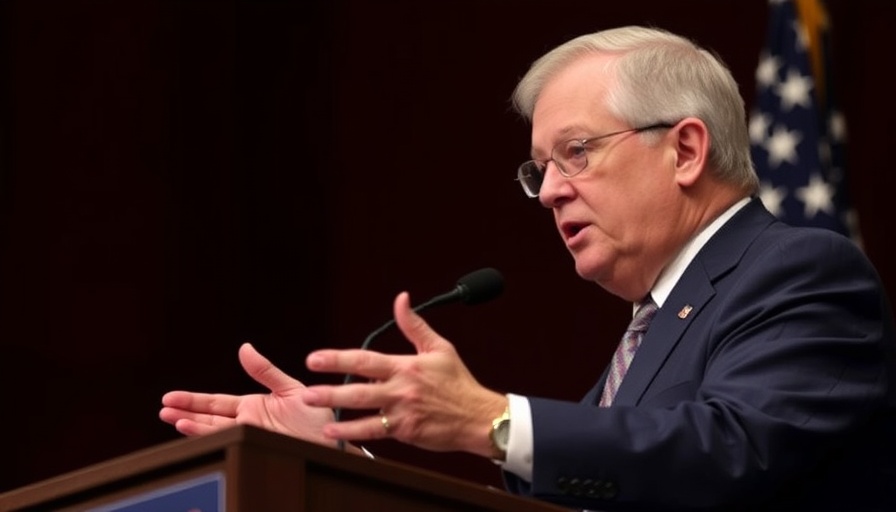
The Call for Change in Federal Policy
In a bold move, FHFA Director Bill Pulte has publicly called for Federal Reserve Chairman Jerome Powell to resign, coinciding closely with President Trump's recent demands to lower the Fed funds rate significantly. With President Trump urging a 2.5% cut, the spotlight on Powell has intensified, particularly after the Fed's decision to keep rates unchanged despite pressing economic concerns.
Understanding Powell's Position Amid Economic Indicators
Powell has pointed to a complicated labor market, underscoring the current unemployment rate of 4.2% as indicative of a strong economy. However, many critics argue that his perspective fails to account for the underlying issues affecting various sectors, particularly housing. The most recent data from the Personal Consumption Expenditures (PCE) showed inflation resting at 2.1% year-over-year, suggesting that a rate cut could alleviate pressure on consumers and possibly stimulate the housing market.
Housing Market Dynamics
The housing sector's struggles cannot be ignored. Reports indicate a stagnation in housing starts, significantly down from their peak in 2022. Builders are hesitant to issue new permits as mortgage rates hover around a concerning 7%. Real estate professionals are undoubtedly observing how these impediments can impact home buying activity.
Historical Context of Economic Cycles
There’s a vivid historical precedent for the dynamics at play. When residential construction falters, it often portends larger economic issues. This cyclical pattern suggests that a downturn in construction is a critical indicator of potential recession, something that both the Fed and Powell have historically overlooked. Within the current climate, this oversight draws relevance as calls for lower interest rates gain traction from high-profile figures like President Trump and Director Pulte.
Future Predictions: What Lies Ahead for Housing?
The implications of Powell’s actions and the Fed’s policy choices are immense. If interest rates do not decrease, the housing sector may continue to falter, delaying economic recovery. However, a proactive approach from the Federal Reserve, including potential rate cuts, could be the catalyst needed to invigorate the housing market and, by extension, bolster the economy. Many hope that increased construction and home sales will relieve inflationary pressures through increased supply.
Empowering Real Estate Professionals through Insight
As real estate agents navigate this precarious climate, staying informed and adaptive is paramount. Understanding market signals and Federal decisions can aid in strategic planning for both buyers and sellers. By remaining responsive to these economic indicators, agents can leverage their expertise to provide clients with valuable insights.
For real estate professionals, this ongoing situation calls for a proactive stance. It’s essential not just to monitor interest rates but also to anticipate shifts in consumer sentiment that could arise should Powell's tenure at the Fed come under pressure. The collective effort from industry leaders can help champion the interests of the housing market during these uncertain times.
Conclusion: The Path Forward
As calls for leadership changes grow, the trajectory of the housing market remains closely linked to the Fed’s monetary policies and responses to current economic realities. With pressure mounting on both Powell and the Federal Reserve from multiple fronts, real estate agents and industry stakeholders must stay vigilant and prepared to adapt their strategies to align with evolving economic landscapes.
 Add Row
Add Row  Add
Add 




Write A Comment